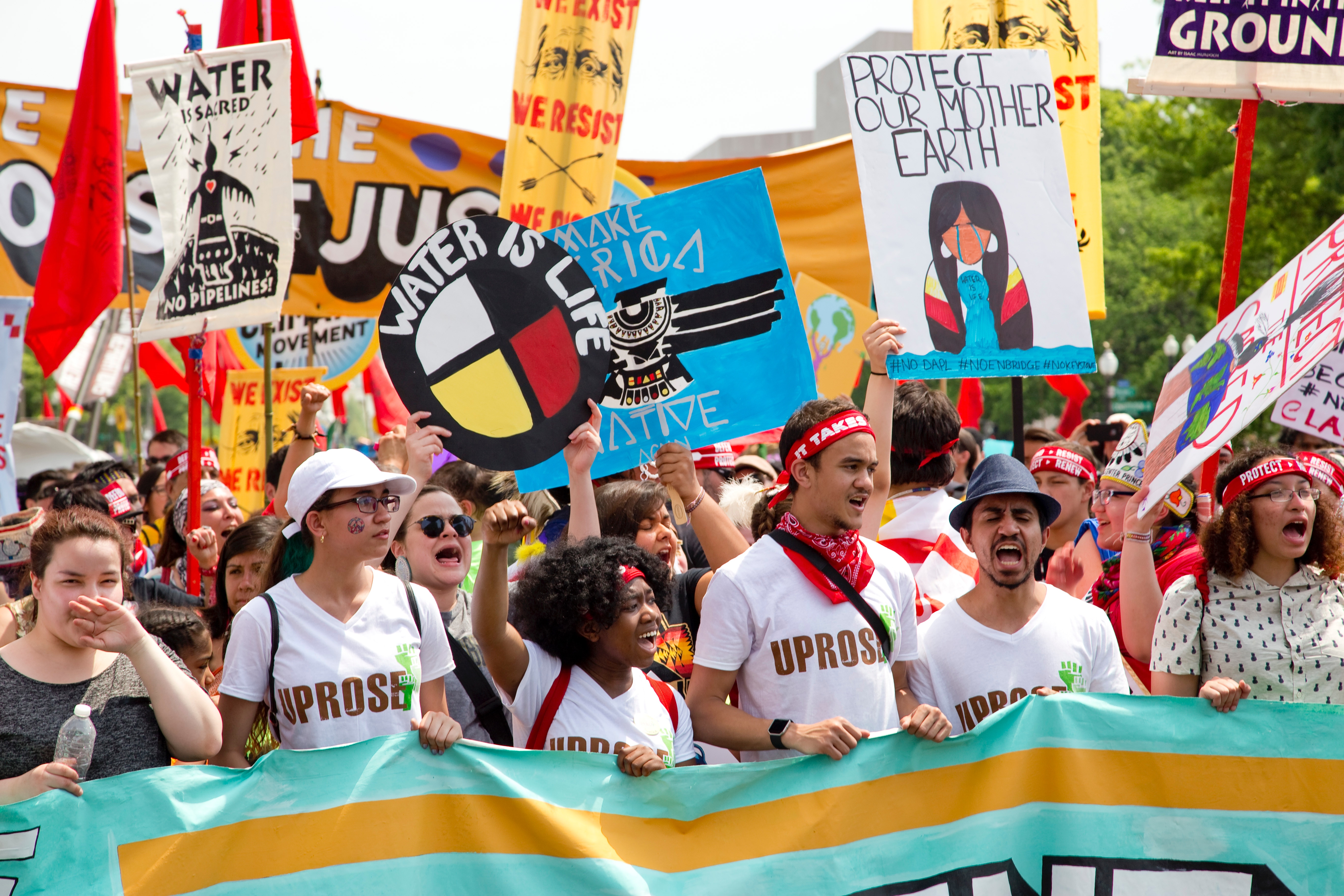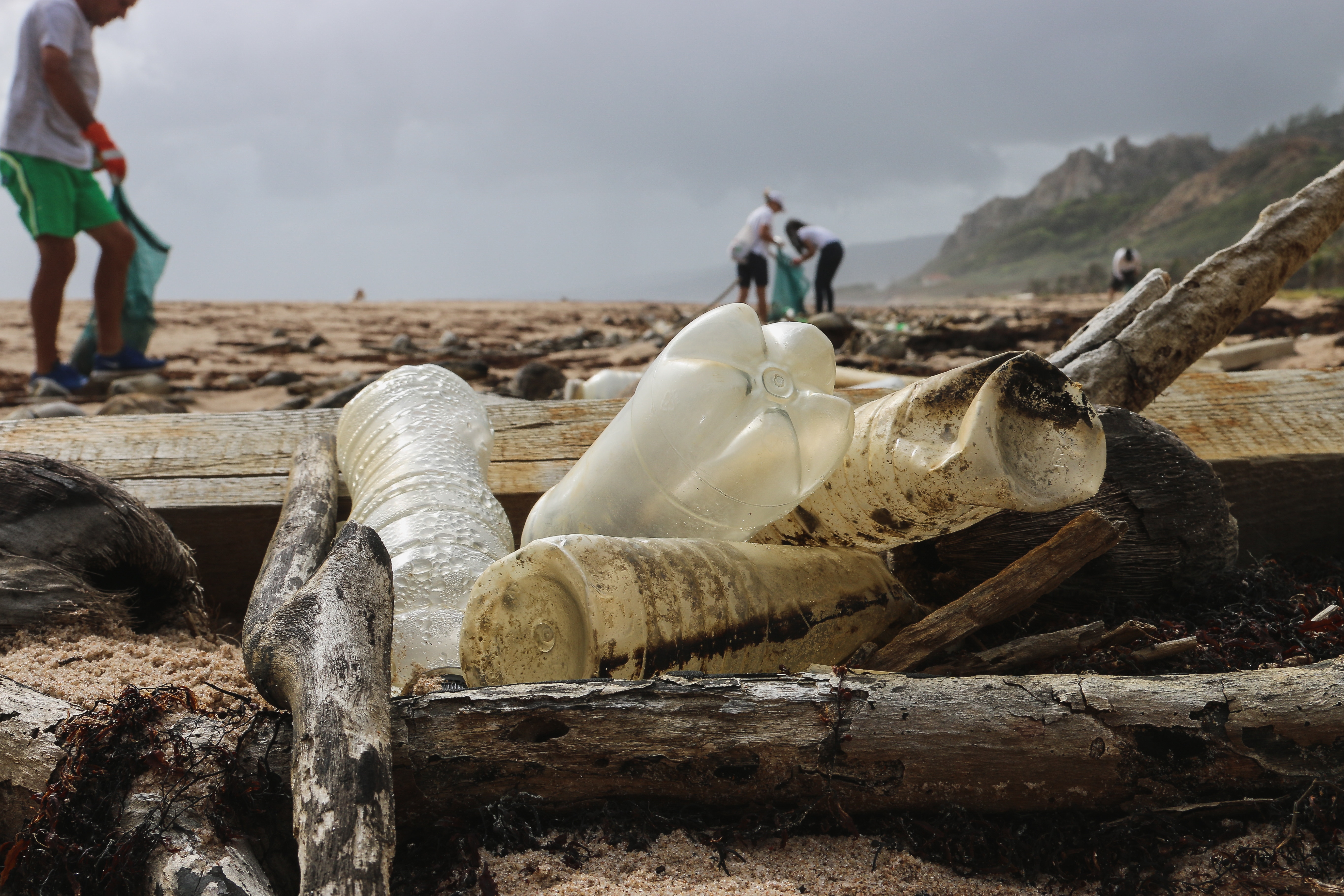 Earth Day and its relevance to the modern environmental movement is a perennial question.
Earth Day and its relevance to the modern environmental movement is a perennial question.
Conceived in the heat of the radical 1960s and first celebrated on April 22, 1970, Earth Day started out as an educational "teach-in" but morphed into a massive demonstration. Nearly 20 million Americans came out to rally support for the Earth that day, a moment that is widely regarded as the birth of the environmental movement.
The power of the eco-wave that swept the nation at the time compelled President Nixon to sign an executive order creating the U.S. Environmental Protection Agency. Soon thereafter Congress worked on new environmental legislation, and passed the Clean Water Act and the Endangered Species Act among others.
Calm Amid the Storm
Today, with a few notable exceptions, Earth Day has become a calmer, gentler affair, comprised largely of community and school groups picking up trash or organizing tree planting campaigns. These are laudable activities, but some question whether too much of the original Earth Day fire has dissipated. Has its observance become a ritualistic relic of the past? Is it time to mobilize more robust activism, especially in light of the increasing threat of a rapidly warming planet?

The online environmental news outlet, Grist, has been highly critical of Earth Day, and at the time of the day's 40th anniversary launched a Screw Earth Day campaign. Though the campaign's title was negative, in fairness, Grist featured a collection of essays on both sides of the debate.
Among the critical essays was Jennifer Oladipo's "Losing Earth Day in the Eco-Babble." Oladipo argues that Earth Day's brand no longer carries cache as a social movement and, in light of everything else on people's social justice radar, is a mere "blip on the green screen."
More derisive was Daniel Akst, whose essay "Earth Day: The Ultimate Empty Gesture," dismisses the holiday as stale and hypocritical, and admonishes environmentalists for failing to set a better example.
Among Akst's recommendations is for people to stop the showy green posturing and simply "do what yields the biggest reduction for the smallest pain." His suggestions included giving up beef, flying less, and buying used goods—coincidentally, these climate friendly recommendations were also reflected in the attention-grabbing Green New Deal, a bold Congressional resolution seeking to set the agenda for combatting climate change.

Not So Fast
The Grist essayists in support of Earth Day included Bill Christofferson, whose piece, "Screw Earth Day? Not so Fast," argued that Earth Day is the largest secular civic event worldwide, with a billion people participating each year. He dismissed critics who fail to recognize the day's continued importance for the environmental movement, and how it has played a role in institutionalizing environmental education and values.
Christofferson also quotes from Senator Gaylord Nelson, a chief architect of the first Earth Day, who wrote that the goal was about more than saving whales and polar bears: "Our goal is an environment of decency, quality and mutual respect for all human beings and all other creatures — an environment without ugliness, without poverty, without discrimination, without hunger and without war."
Earth Day, Every Day
Planet Aid agrees wholeheartedly with this original Earth Day goal. Our mission aims to foster environmental stewardship, save resources, reduce poverty, and empower disadvantaged communities.
As we celebrate Earth Day this year and draw near to its golden anniversary, we renew our commitment to the original aims. Extreme weather brought on by climate change is wreaking havoc with the environment and is impacting the poor the most. The need to act could not be more urgent.
 You can join in the effort by donating your unwanted textiles, and do some good for the planet and for people. Just find your nearest big yellow bin in one of our 11 service areas.
You can join in the effort by donating your unwanted textiles, and do some good for the planet and for people. Just find your nearest big yellow bin in one of our 11 service areas.
